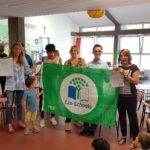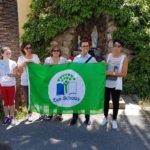{:en}With six certificates to as many schools and four banners flying over the four city plexuses, Loano is the Savona locality to have been awarded the most Green Flags, the Fee's (Foundation for Environmental Education) international recognition of a school's commitment to reducing its environmental impact on the local area. Once again this year the Green Flag was awarded to the Valerga, Milanesi, the “Simone Stella” preschool and the “Stella... Stellina” daycare center run by the Leone Grossi Foundation, and the Rossello Institute preschool and elementary school.
The handover was held this morning. Present at the ceremony were Fee representatives Albina Savastano and Marina Drì the deputy mayor with proxy for schools Luca Lettieri and environmental councillor Manuela Zunino, as well as pupils from all classes involved in the project. Animating the party, for the second year in a row, was the “Be Street” group, which treated the children to a “themed” rap session.
“As an administration,” recalls Mayor Luigi Pignocca, "for years we have been promoting projects in the schools of our city aimed at making children aware of the need to defend and protect the environment. This is both with initiatives aimed, for example, at explaining to them how to carry out proper recycling collection or how important it is to reuse materials that are usually classified as garbage, and with broader actions, such as the Pedibus. Having been awarded the Green Flag again this year confirms the goodness and effectiveness of the work done in synergy with the school leadership and teachers.".
“Last year we wanted to raise awareness in particular among the pupils on the issue of waste and the importance of carrying out quality separate collection,” adds Environment Councillor Manuela Zunino. "Having launched the new separate waste collection system right at that time, it seemed in fact appropriate to invite our youngest fellow citizens to reflect on a topic that is extremely topical and that would see them act in the first person together with their parents. This year, however, we chose to focus on other themes as well, including the concept of energy conservation and, more generally, renewable energy, a topic that will become increasingly important in the coming years and on which the children will certainly have to reflect as the citizens of tomorrow.".
Deputy mayor and alderman with responsibility for schools Luca Lettieri recalls, “The Eco-Schools program includes activities that are differentiated according to the age of the pupils, but all have in common the goal of raising children's awareness of environmental protection and preservation. To join requires eco-committees, composed of school representatives (principal, teachers and parents), representatives of the municipality, and local organizations with the support of Fee representatives, to draw up an annual plan and define actions and goals to be achieved during the school year. Once again this year our schools confirmed themselves as Eco-Schools and achieved relevant goals from the point of view of promoting the values brought forward by Fee.”.
The children of the “Stella... Stellina” nursery worked on a project that first led them to discover firsthand the characteristics of the marine environment and then to collect and select (natural) materials to be reused to reconstruct what they saw and touched with their hands during educational outings.
The children of the “Simone Stella” preschool, on the other hand, recreated marine, mountain and glacier ecosystems by using salvaged materials and making three-dimensional models. They observed the causes of the destruction of various natural environments and, through this, were able to understand what concrete actions man can take to prevent this. The project aimed to improve knowledge of climate phenomena that create damage to the environment; the effects of pollution on the life of the planet; motivate children to acquire correct behavior.
Valerga schools, on the other hand, worked on alternative energy. The project is part of the studies of space reuse pedagogy and within the transversal skills of design and entrepreneurship for a vision of “Sustainable Living” (Europe 2030 Goals). Specifically, the project led to the creation of “a renewable and alternative school.”.
On the other hand, as far as Milanese schools are concerned, pupils were involved in a project aimed at making them acquire information and awareness towards environmental issues, particularly those related to energy saving and upgrading. This was through learning “good habits” for energy conservation, knowledge of alternative energies, and awareness of the use of clean, non-polluting energies. Teachers organized workshops on energy-saving issues and energy upgrading techniques. All pupils also began a journey on energy knowledge and discovery, waste, ways to counter bad habits and realize the concept of “eco sustainability.”.
The Rossello Institute's kindergarteners tackled the theme of the sea and recycling: the pupils were encouraged to look with more attentive eyes at the area to grasp the differentre between the marine environment and the mountain environment; the relationship between the individual, the sea and life, through experiential knowledge, understanding how the three elements of the relationship influence each other. The children then analyzed the characteristics, traditions and culture of the sea in their country (Loano) until they came to identify it as a heritage to be known, cared for eand safeguarded, and as a bridge that unites peoples and cultures.
Over the past year, elementary school pupils at the Rossello Institute have carried out a series of educational outings to discover the local area: the kindergarten children learned more about the marine environment, the elementary classes that of the hilly hinterland. Accompanied and guided by experts, the children studied the flora and fauna that inhabit the woods of Castagnabanca and Verzi, learned to recognize animal footprints and the leaves of plants and trees typical of the Ligurian ecosystem. In addition, they placed some cameras with which they captured the “night life” of the living creatures that inhabit the hinterland. Afterwards, the children devoted themselves to making crafts and small works of art using “poor” and natural materials. The goal was to deepen the knowledge of the marine and hill ecosystem, local customs and traditions related to them, and to convey the importance of safeguarding, defending and enhancing the environment around us. The project led to the staging of the exhibition “Loano, a treasure to be discovered,” which was hosted for several days in the Mosaic Room of Palazzo Doria.{:}


